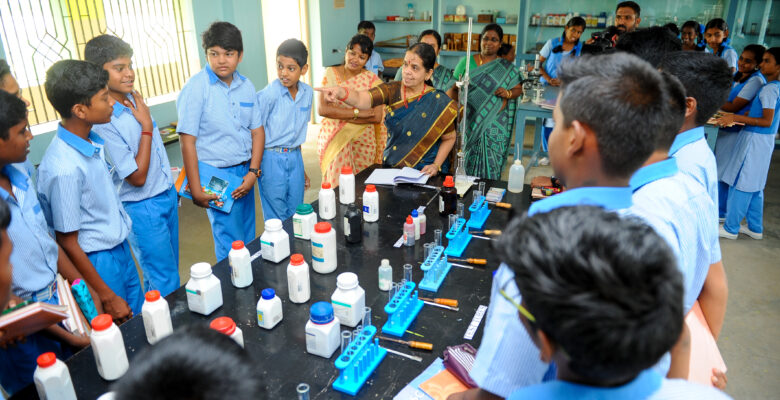Curriculum
The CBSE curriculum is a standardized national framework for education, focusing on a comprehensive and structured approach to learning. It encompasses core subjects like English, Hindi, Mathematics, Science, and Social Science, along with elective subjects and co-scholastic activities. The curriculum is designed to foster competencies in learners and reflects the nation’s vision for education.
Here’s a more detailed look at the CBSE curriculum:
Core Subjects:
- Languages: English, Hindi, and a third language (regional or foreign).
- Mathematics: Includes both standard and applied mathematics.
- Science: Covers Physics, Chemistry, and Biology.
- Social Science: Includes History, Geography, Political Science, and Economics.
Elective Subjects:
- A wide range of elective subjects are available, including:
- Skill Subjects: Computer Science, Biotechnology, etc.
- Humanities: History, Political Science, Sociology, Psychology, etc.
- Fine Arts: Dance, Hindustani Melodic, etc.
- Other Subjects: Home Science, Legal Studies, etc.
Curriculum Areas:
- The curriculum is structured into learning areas, including:
- Languages
- Humanities
- Mathematics
- Sciences
- Skill Subjects
- General Studies
- Health and Physical Education.
Assessment:
- CBSE follows a system of formative and summative assessments.
- Formative assessment involves activities like individual and group projects, and pen-and-paper exams.
- Summative assessment includes end-of-semester or year-end examinations.
Key Features:
Standardization:
The CBSE syllabus is a nationally recognized framework, ensuring consistency in content and evaluation.
Competency-Based:
The curriculum aims to foster specific skills and knowledge in students.
Holistic Development:
It includes both scholastic (academic) and co-scholastic (non-academic) areas.
Flexibility:
Students can choose from a variety of elective subjects based on their interests and career goals.
